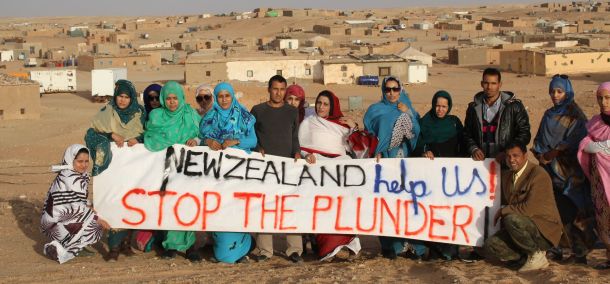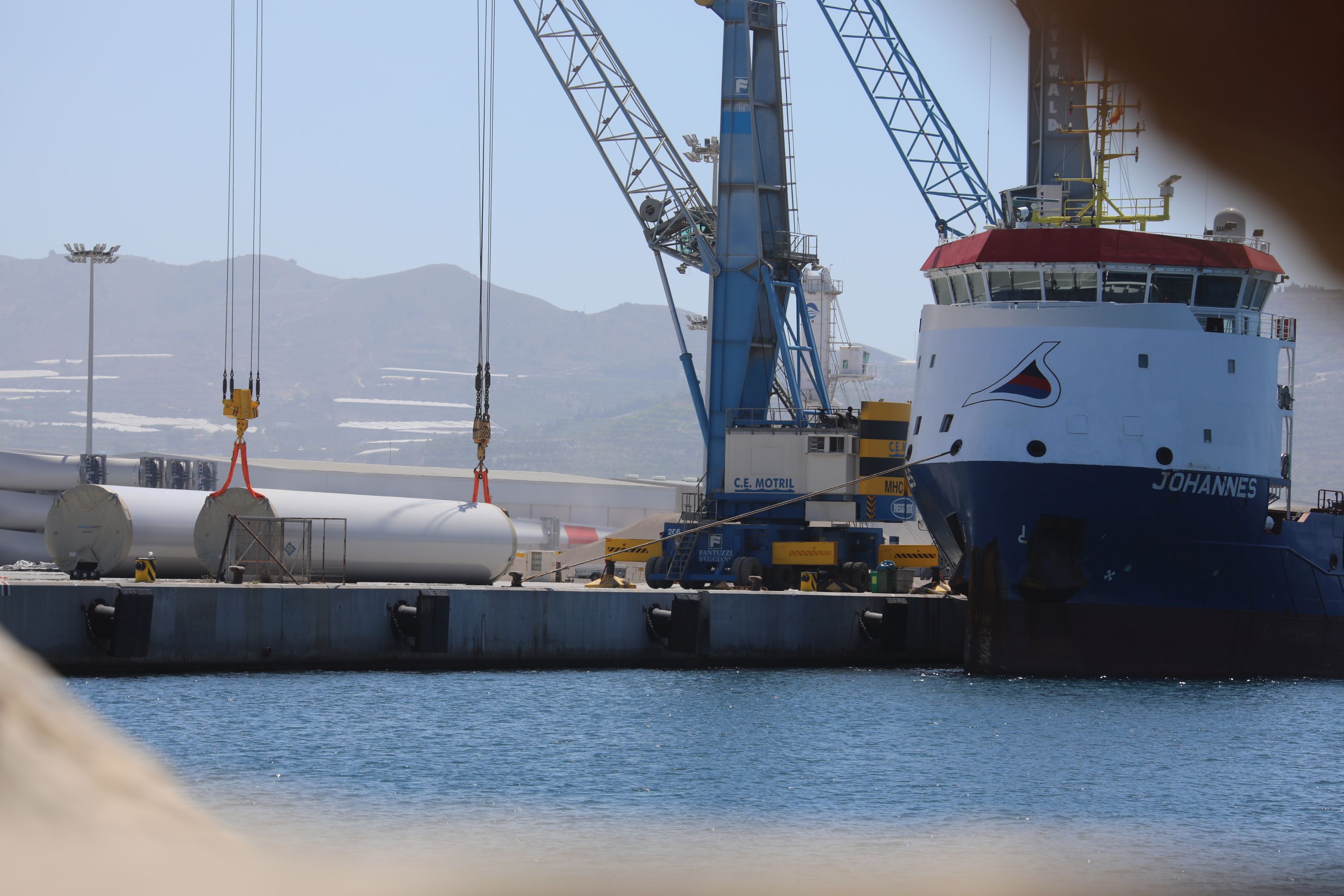
Ravensdown is "risking potentially disruptive direct action by refusing to allow port workers to register their protest at the importing of Blood Phosphate from the Western Sahara", says the New Zealand Rail and Maritime Transport Union.
"Blood Phosphate Importers Ravensdown Appear to Prefer Confrontation to Dialogue", is the title of a statement issued today, 21 November 2019, by the Rail & Maritime Transport Union of New Zealand.
Ravensdown Ltd is one of the two farmer cooperatives in New Zealand that import phosphate rock from occupied Western Sahara - a Non-Self-Governing Territory in Northwest Africa that was brutally invaded and annexed by Morocco in 1975. To date, Morocco continues to militarily occupy three-quarters of the territory, including its phosphate reserves which are exploited to the benefit of Morocco's national treasury. The Saharawi people - living in refugee camps in Algeria or under the yoke of a brutal oppression - have not consented to the phosphate trade, as would be in line with their internationally recognised right to self-determination.
The controversial trade is documented in the annual Western Sahara Resource Watch report P for Plunder. New Zealand is one of the very few countries still importing the conflict mineral, after Spain, Lithuania, Australia, Colombia, Venezuela, Mexico, Canada, USA, Norway halted the trade over the last years.
‘Our understanding is that a ship chartered by Ravensdown, the Federal Crimson, carrying a cargo of blood phosphate mined in Western Sahara and being imported into New Zealand, was due to arrive in Lyttelton at the end of this week. Our sources tell us the ship is bound for Napier and then Lyttelton,’ said RMTU South Island Organiser John Kerr.
‘We’ve had contact from activist groups in Christchurch who say are preparing potentially disruptive protests against the importation of Blood Phosphate to coincide with the arrival of this ship. Last month the Council of Trade Unions (CTU) passed a resolution condemning Morocco’s illegal occupation of Western Sahara and calling upon the New Zealand government to halt importation of phosphates from the area. As an affiliate to the CTU the RMTU made a request to Ravensdown, via Lyttelton Port management, for our members to be allowed to board the vessel and deliver a letter of protest. We believe that an orderly, peaceful protest in this manner would appease those committed to more radical, disruptive tactics. Ravensdown refused our request,’ Kerr said.
‘Our fellow unionists in Australia, the Maritime Union of Australia, have used this method to register protests against Blood Phosphate imports, to us it seems a relatively mild and pragmatic way to exercise a fundamental democratic right without risking undue disruption. Unfortunately, Ravensdown appear to prefer confrontation to dialogue,’ he said.
The statement comes on the back of continuous civil society protests in different ports of New Zealand, calling on both Ravensdown and Ballance Agri-Nutrients to end the import of "blood phosphate".
Greenland Yes, Western Sahara No? The EU’s self-determination test
As the European Union rightly rallies behind Greenlanders’ right to decide their own future in the face of external pressure, a test of the EU’s real commitment to self-determination is quietly unfolding in Brussels.
New report: Certified occupation
International certification standards embellish Morocco’s controversial trade with fisheries and agricultural products in occupied Western Sahara, new report documents.
Certification giant SGS points fingers elsewhere
SGS blames everyone else for mistakes on MarinTrust certificates it had issued to Moroccan companies in occupied Western Sahara.
New report: Greenwashing Occupation
Out now: WSRW today publishes a new report outlining the massive - and deeply problematic - renewable energy projects that Morocco is developing in occupied Western Sahara.



